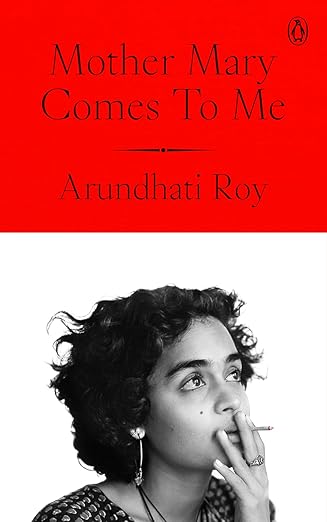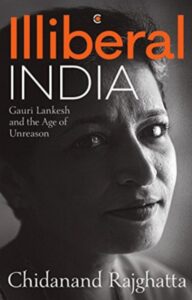Why I Picked This Book
I enjoy Arundhati Roy’s writing, be it fiction or non-fiction. She weaves magic with words, capturing political urgency with her lyrical storytelling. I have read and re-read most of her books, and I have always felt mesmerized not just by what she has written but by how she has written it. What makes her work even more striking is her use of wit and sarcasm to drive home a point. It is for all these reasons that, when her memoir “Mother Mary Comes to Me” came out, I picked it up eagerly.
The Book
Mother Mary Comes to Me is as much a memoir of Arundhati Roy as it is of her mother, Mary Roy. From the remote tea estate in Assam to Ooty, Kottayam, Delhi, and then the world, her story is remarkable. The book takes us on a journey to her village and introduces the readers to her mother, Mrs. Roy, and their complex relationship. It gives a peek into their relationship over the years. The memoir spans over 60 years and captures the journey of the author and her growth as a person, artist, and writer.
The book offers readers a glimpse into her personal life and the journey of becoming the global figure she is today. Yet she narrates it underplaying her achievements and sharing it with nonchalance. Leaving home at the age of 17 and landing in faraway Delhi, college days, first job, first film, first script, first novel, and then Booker Prize and life after it, she tells it all with an ease that makes the extraordinary feel almost ordinary. And along with that, we have the story of Mrs. Roy, her asthma, her school, her litigation, and her mercurial temperament.
The author also shared how her life changed after she won the Booker Prize. How she was drawn to and engaged with various political and social causes, for which she was called “Urban-Naxal” and anti-national”. From the Narmada Bachao Andolan to the Naxalites issue, Kashmir, or her opposition to India’s nuclear test, she has been consistently vocal and unflinching, documenting both her views and the criticism they attracted. You will find snippets of some of her non-fiction work captured in this book.
For readers who admire her, disagree with her, or differ with her ideologically, this book is a great opportunity to know her more closely. And whether one agrees or disagrees with her politics, there is no denying that she remains a master weaver of words. I have read and re-read many paragraphs, relishing and enjoying the wit, sarcasm, and depth of her writing and marveling at how someone can write with such brilliance. There are many, but one particular line that stayed with me was:
“The challenge for those of us who are not chosen, and instead watch love pass us by, is to learn from it, marvel at it, and not grow bitter and incapable of love ourselves.”
The book moves at a fast pace, slowing only where Roy describes her mother’s asthma and her temperamental issues. Yet, these moments feel essential, as the book is about their relationship, and to capture it fully, she brings her mother to life with all her nuances. It is her exceptional writing, mixed with sharp wit and humor, that makes the mundane vivid and engaging.
My Recommendation
Mother Mary Comes to Me is a memoir by one of India’s finest English writers, and her brilliance reflects on every page of the book. Whether you are an admirer of her work or disagree with her ideology, this book is worth reading for the sheer beauty of what words can create. Along the way, one would know the making of a great writer and the fearless socio-political activist that she is. If you enjoy reading memoirs, add this one to your reading list.
About the Author
Arundhati Roy is the author of several books, including The God of Small Things, which won the Booker Prize in 1997 and has been translated into more than forty languages. She was born in 1959 in Shillong, India, and studied architecture in Delhi, where she now lives. She has also written several non-fiction books, including Field Notes on Democracy, Walking with the Comrades, Capitalism: A Ghost Story, and many more.


